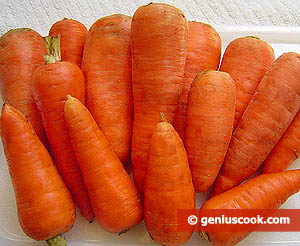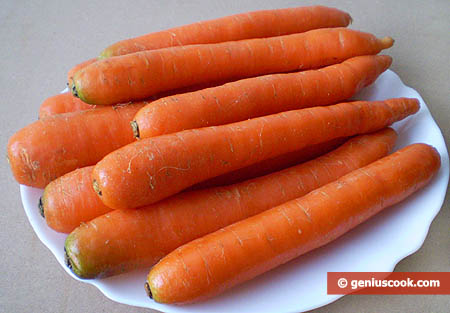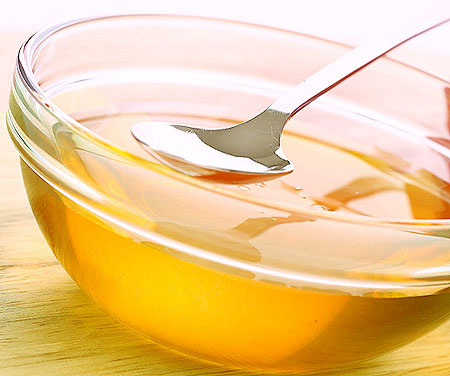Carrot
 People have been cultivating the carrot since ancient times. Many treatises and scientific works discussed the health benefits of this tasty and juicy root crop.
People have been cultivating the carrot since ancient times. Many treatises and scientific works discussed the health benefits of this tasty and juicy root crop.
Recent studies revealed the carrot’s high content of natural antibiotics called phytoncids. If you keep carrot juice in your mouth or chew the carrot, the number of harmful bacteria drops dramatically. The carrot also contains vitamins C, E, PP, the group B and such minerals as magnesium, zinc, chlorine, fluorine, iodine, copper, sulphur, phosphorus, manganese, cobalt, iron, barium, silicon and pectins.
Mostly, the carrot health benefits are linked to its high carotene content that transforms into vitamin A and works as a strong antioxidant. Vitamin A deficiency leads to poor blood, easy fatigability and vision impairment. The carrot promotes the development and growth of kids and helps improve their immune system.
Health Benefits of Carrot
Carrot is a good remedy against:
- liver and kidney disorders and gallstones in the gallbladder;
- gastritis and other digestive disorders;
- cold-related diseases and tuberculosis.
But there are much more health benefits of carrot, for example, the following:
- The carrot stimulates the lactation in breastfeeding women and helps against heart disorders.
- The carrot improves the blood and makes us younger.
- This vegetable moisturizes the skin, improves the complexion and makes the skin smooth and silky.
The carrot is a highly nutrient root crop. It is widely used in gastronomy as the most popular seasoning. The carrot may serve as the main ingredient in a dish. The carrot comes in salads, sauces, soups and borsches and is used for making a great variety of puddings, patties, baked puddings and soufflés.
Note: It is worth mentioning that the thermal treatment does not impair the carrot’s antioxidant properties, making them nearly five times stronger. Any at improves vitamin A uptake because it is the fat that helps carotene turn into vitamin A.

Carrot







